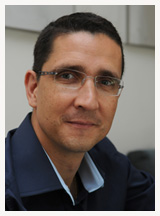I often wonder about how the democracy manage to survive in a world where scare ressources imply so many difficulties to share them….What can be the nature of contract between citizens ? In fact The quality of democratic governance can sometimes be augmented by reducing the discretion of elected representatives. Well-functioning democracies often delegate rule-making power to quasi-independent bodies when the issues at hand are technical and do not raise distributional concerns; when log-rolling would otherwise result in sub-optimal outcomes for all; or when policies are subject to myopia, with heavy discounting of future costs. Independent central banks provide an important illustration of this. It may be up to elected politicians to determine the inflation target, but the means deployed to achieve that target are left to the technocrats at the central bank. Even then, central banks typically remain accountable to politicians and must provide an accounting when they miss the targets. Similarly, there can be useful instances of democratic delegation to international organizations. Global agreements to cap tariff rates or reduce toxic emissions are indeed valuable. But economists have a tendency to idolize such constraints without sufficiently scrutinizing the politics that produce them. To deep into the analyze of this link between Economy and Democracy, you should read this amazing paper of a great economist : Dany Rodrik.
L'économie n'a pas uniquement pour but de générer des revenus, mais aussi de les utiliser à bon escient en vue d'améliorer notre niveau de vie et nos libertés – Amartya Sen
Le Blog Eco de Philippe Jean-Pierre
Calendrier Economique
Calendrier économique fourni par Forex ProsPrincipaux taux de changes Internationaux et Océan Indien
Promu par Investing.com L’actualité économique par le journal l’Expansion
L’actualité économique par le journal l’Expansion- Emirats arabes unis, Chine… Ces pays où l’on enseigne l’Intelligence artificielle à l’école 5 mai 2025
- Comment les entreprises chinoises contournent les droits de douane de Donald Trump 5 mai 2025
- Amazon, emblème de la "génération J + 1" : les clés du succès analysées par Jérôme Fourquet 5 mai 2025
- Droits de douane : la tech américaine frappée par le repli publicitaire de Shein et Temu 4 mai 2025
- Finances publiques : François Bayrou évoque un référendum sur la réduction de la dette 4 mai 2025
- La guerre des puces vue par Chris Miller : "Tout ce qui fait souffrir la Chine finit par faire souffrir les Etats-Unis" 4 mai 2025
- Pologne : les secrets d'un miracle économique dans une Europe en berne 3 mai 2025
Principaux Indices Boursiers
Cours des indices boursiers fournis par Forex ProsPrincipaux Cours des Matières Premières
Promu par Investing.comÉtiquettes
Afrique Aménagement du territoire Chine Crise croissance Croissance Economique crédits démocratie Développement Economie Economie de l'innovation Economie de La Réunion Economistes Célèbres Environnement Etats-Unis Europe Finance Ile de La Réunion Ile Maurice Inde Indépendance des polititiques économiques inflation Innovation Intelligence territoriale. Intelligence économique Management Management stratégique Marchés Marketing Métro Pauvreté Politique économique Prospective stratégique Qualité de vie et Bien être R&D Retraites Scot Stratégie Taux de change Transport en Site Propre Union européenne Urbanisme Ville Ville durable épargneJournal-Headlines-News-#Politiques
Commentaires récents
- Spidou dans Prospective de l’an 2000…en 1910 !!!!!
- Vaspvefelap dans The Oil Drum | Is It Really Possible to Decouple GDP Growth from Energy Growth?
- black diamond engagement rings la jolla dans A l’Ouest y a du nouveau ! Vers la création d’un marché commun entre les Etats d’Afrique de l’Est et le géant sud-africain
- louis vuitton outlet store dans Le prix des carburants suit-il celui du pétrole ?
- uggs sale dans L’avenir de La Réunion ne passe pas que par une route : il appelle aussi une innovation de gouvernance !

